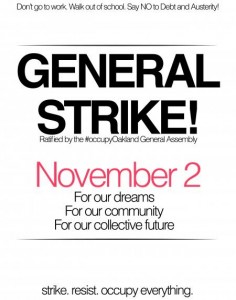A Rancid Foreclosure Fraud Settlement Trial Balloon, Herbert Obamavilles, What Digby Said & The Import of the Occupy Movement
 I do not usually just post simply to repeat what another somewhat similarly situated blogger has said. But late this afternoon/early this evening, I was struck by two things almost simultaneously. Right as I read Gretchen Morgenson’s latest article in the NYT on the latest and most refined parameters of the foreclosure fraud settlement, I also saw a post by Digby. The intersection of the two was crushing, but probably oh so true.
I do not usually just post simply to repeat what another somewhat similarly situated blogger has said. But late this afternoon/early this evening, I was struck by two things almost simultaneously. Right as I read Gretchen Morgenson’s latest article in the NYT on the latest and most refined parameters of the foreclosure fraud settlement, I also saw a post by Digby. The intersection of the two was crushing, but probably oh so true.
First, the latest Foreclosure Fraud Settlement trial balloon being floated by the “State Attorney Generals”. There have been several such trial balloons floated on this before; all sunk like lead weights. This is absolutely a similar sack of shit; from Morgenson at the NYT:
Cutting to the chase: if you thought this was the deal that would hold banks accountable for filing phony documents in courts, foreclosing without showing they had the legal right to do so and generally running roughshod over anyone who opposed them, you are likely to be disappointed.
This may not qualify as a shock. Accountability has been mostly A.W.O.L. in the aftermath of the 2008 financial crisis. A handful of state attorneys general became so troubled by the direction this deal was taking that they dropped out of the talks. Officials from Delaware, New York, Massachusetts and Nevada feared that the settlement would preclude further investigations, and would wind up being a gift to the banks.
It looks as if they were right to worry. As things stand, the settlement, said to total about $25 billion, would cost banks very little in actual cash — $3.5 billion to $5 billion. A dozen or so financial companies would contribute that money.
The rest — an estimated $20 billion — would consist of credits to banks that agree to reduce a predetermined dollar amount of principal owed on mortgages that they own or service for private investors. How many credits would accrue to a bank is unclear, but the amount would be based on a formula agreed to by the negotiators. A bank that writes down a second lien, for example, would receive a different amount from one that writes down a first lien.
Sure, $5 billion in cash isn’t nada. But government officials have held out this deal as the penalty for years of what they saw as unlawful foreclosure practices. A few billion spread among a dozen or so institutions wouldn’t seem a heavy burden, especially when considering the harm that was done.
The banks contend that they have seen no evidence that they evicted homeowners who were paying their mortgages. Then again, state and federal officials conducted few, if any, in-depth investigations before sitting down to cut a deal.
Shaun Donovan, secretary of Housing and Urban Development, said the settlement, which is still being worked out, would hold banks accountable. “We continue to make progress toward the key goals of the settlement, which are to establish strong protections for homeowners in the way their loans are serviced across every type of loan and to ensure real relief for homeowners, including the most substantial principal writedown that has occurred throughout this crisis.”
Read the full piece, there is much more there.
Yes, this is certainly just a trial balloon, and just the latest one at that. But it is infuriating, because Read more →
